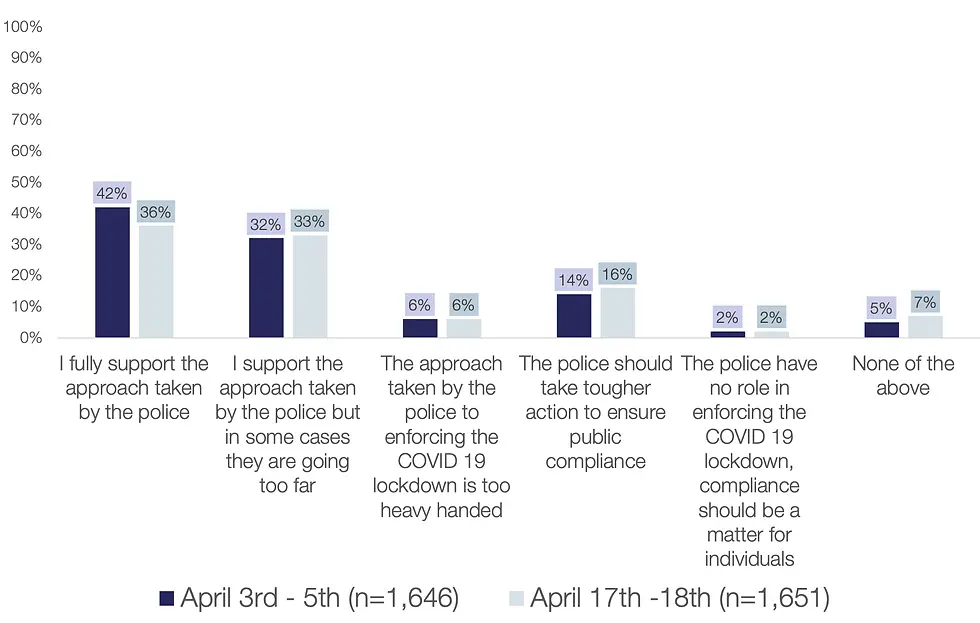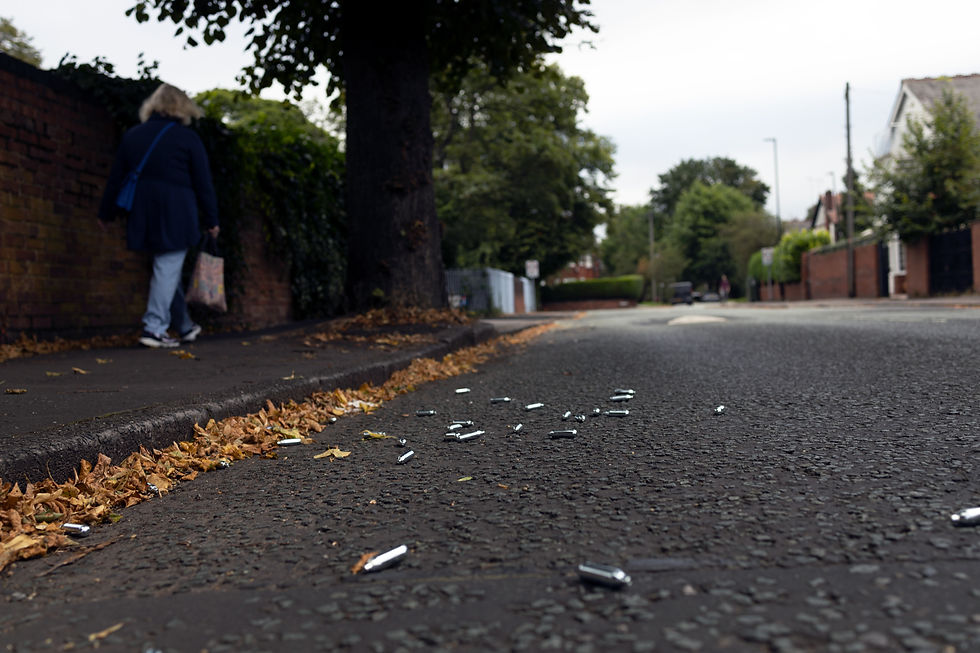Policing the COVID-19 lockdown: new poll
- Jon Clements
- May 23, 2020
- 4 min read
Updated: Apr 24, 2025
Perspectives
Jon Clements, Executive Director
Thursday 23 April 2020

The COVID-19 lockdown is throwing up all sorts of challenges for our public services and policing is no exception. As the coercive arm of the state, officers are being asked by governments all over the world to enforce unprecedented restrictions on our liberty.
At Crest we have a particular interest in the impact of COVID-19 on the relationship between the public and the police.
At the start of April, we commissioned YouGov to ask adults across the UK what they thought of the approach police were taking to handling the lockdown. That survey (we published the results two weeks ago) found 42 per cent fully supported the police approach and a further 32 per cent also supported the police though they thought officers had gone too far in some cases. In other words, nearly three quarters (74 per cent) of the public backed the way the police were handling the lockdown (though some of the media headlines chose not to reflect that).
Since then the debate has intensified. The public has seen images circulating on the internet of overzealous officers shouting in people’s faces during the Easter Bank Holiday, and commentators and politicians have criticised suggestions by some forces that the police could or should be searching shoppers’ trolleys for “non-essential” items. Some have suggested that the police are practicing a form of hypocrisy - threatening individuals who are not breaking the law, while failing themselves to adhere to social distancing rules. Last week, the Commissioner of the Metropolitan Police came under fire for taking part in an organised clap for carers on Waterloo Bridge.
So, what does the public think now?
We commissioned YouGov to ask the same question - and we got nearly the same answer back.
Our new survey of 1,651 adults found 36 per cent of respondents fully supported the current police approach for the lockdown while a further 33 per cent also support the police approach though think officers have gone too far in some cases. In other words 69 percent support the police - down slightly but hardly significantly on a fortnight ago.
Notably, the proportion of the public which believes the police are too heavy-handed has not increased and remains at 6 per cent. And the proportion who believe the police should take tougher action has risen (marginally) from 14 per cent to 16 per cent.
Taken as a whole, these results (the dataset is available here) suggest that the public is currently more willing to give the police the benefit of the doubt than some commentators, either because they are unaware of particular viral clips and controversies or because they shrug them off as unrepresentative of their experience of policing or, ultimately, not that important in the bigger picture.
There is still evidence that the police should not take this public support for granted, however, particularly in London where 42 per cent of people believe police have gone too far in some cases (around 10 percentage points more than in other parts of the country). But overall chief constables and Police and Crime Commissioners should take heart from these findings which appear to vindicate the “engage, explain, encourage and enforce” approach set out by the National Police Chiefs Council. There has been much mockery of newly published police guidance, which attempts to help officers work out when travel is legitimate and what may constitute an essential journey. But the lack of clarity from the government on these questions in its emergency legislation has meant the police and prosecutors have had little choice but to try and fill in the gaps themselves.
Looking further ahead, however, it will be interesting to see if public support holds up over the medium and longer term. The lockdown is barely four weeks old and the longer it continues and evolves the harder it may become to police, should the public grow weary or more officers appear to overstep the mark. In particular, there will be nervousness about how the public will react to enforcement of a variable lockdown, in which certain sections of the population or particular parts of the country are subjected to tighter or looser restrictions.
If the lockdown was lifted for less vulnerable groups, would the public support the police fining or arresting over 70s who were still subject to government restrictions?
We remain very fortunate in the UK that policing has widespread legitimacy with trust in police officers relatively high, at 75%. Most of us accept that the current pandemic is likely to put strain on the relationship between the public and the police. The challenge for chief constables, PCCs and the government is to effectively enforce the lockdown, potentially over many more months, without missteps or tactics which leaves the police-public relationship with a damaging post COVID-19 hangover.





